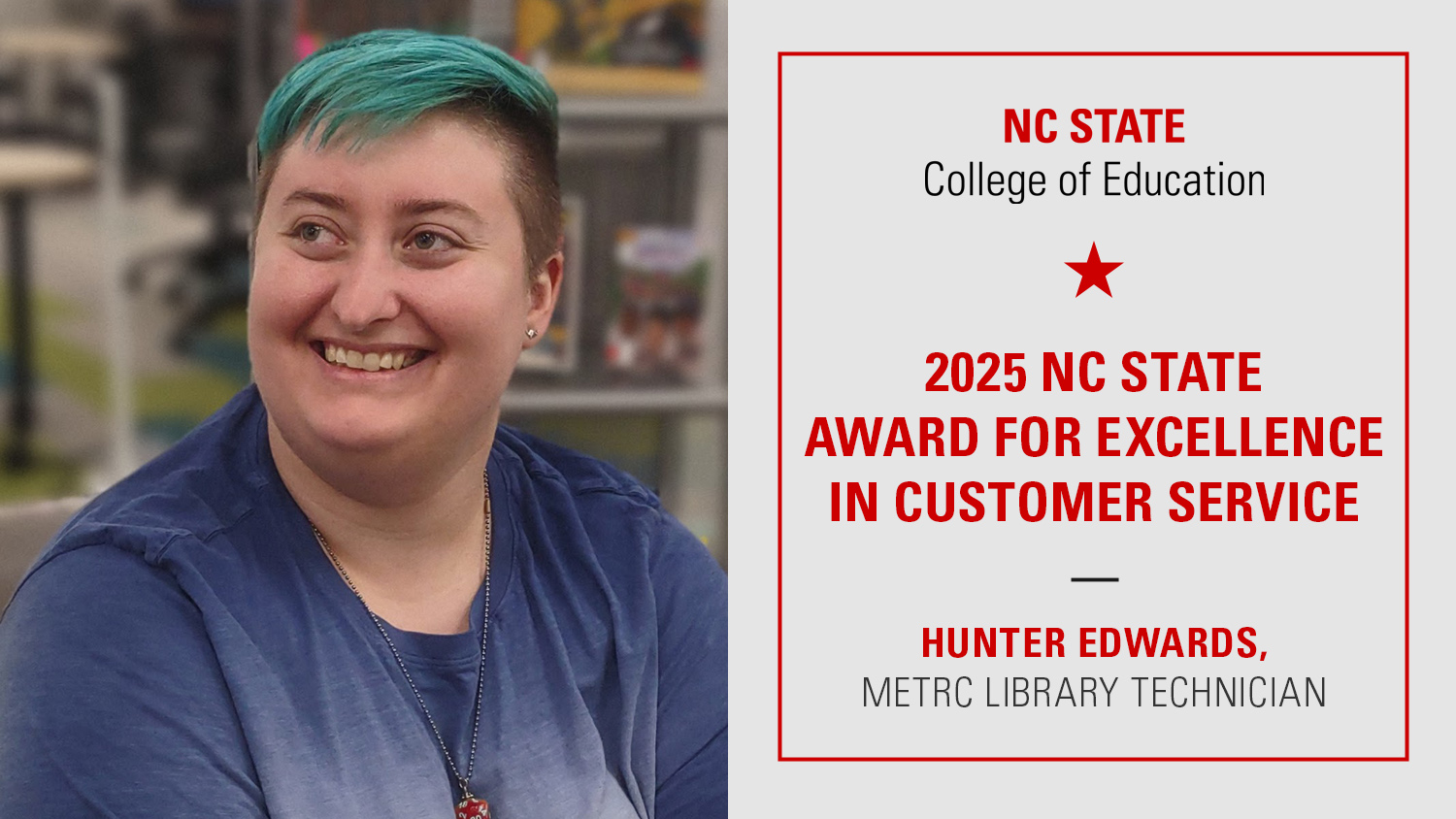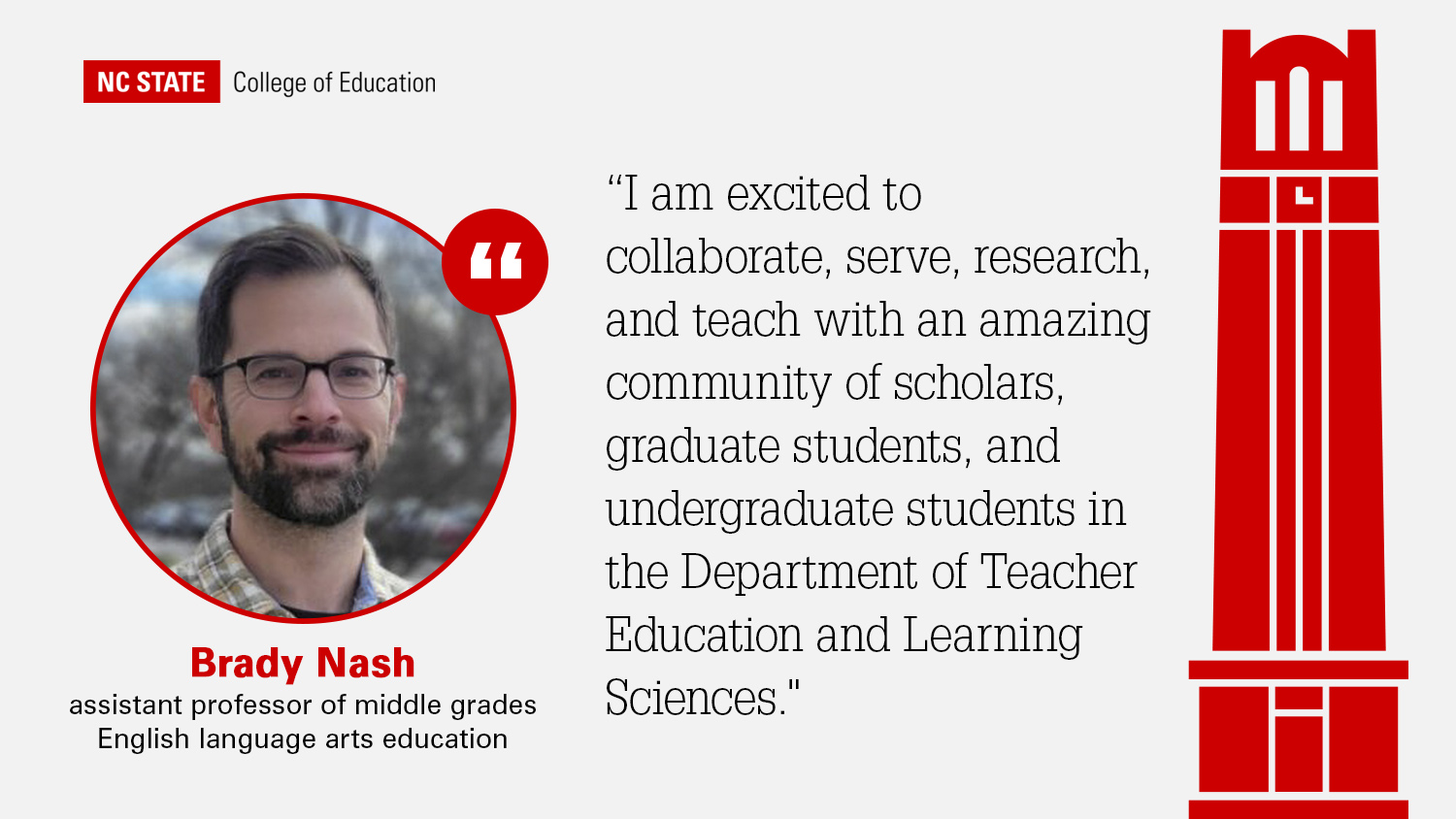Joy Gaston Gayles will take on a new role in the NC State College of Education during the 2023-24 academic year as she becomes the head of the Department of Educational Leadership, Policy, and Human Development.
Gayles has been with the college since 2007 and most recently served as an Alumni Distinguished Graduate Professor and senior advisor for advancing diversity, equity, and inclusion. She also recently completed a term as president of the Association for the Study of Higher Education (ASHE).
Learn more about Gayles below:
Why did you choose a career in education?
When asked this question a few years ago, I realized that I didn’t choose education … education chose me. As I get older, I become clearer about my purpose in life. For me, purpose involves recognizing and embracing my uniqueness, personality, gifts and talents and using them for good — for the benefit of others. I feel at my best when I’m engaging with and supporting people. Education is one of the places I get to live my purpose. I get to support people in achieving their goals and challenge and support their hearts and minds. Through the teaching and learning process, I get to help bring out the unique gifts in others so they can use them to find innovative solutions to complex problems.
What inspired you to pursue a doctoral degree?
I didn’t consider a doctoral degree until I started my master’s degree program at Auburn University. I took a research design course that opened my mind to infinite possibilities. I suddenly had new questions about all sorts of issues, from things I didn’t understand growing up to my work in intercollegiate athletics. That class taught me to question everything and also how I might participate in the knowledge discovery process. After that course, I decided to pursue the master’s thesis option and conduct a study on student athlete graduation rates. I like to think that a hallmark of a good study is that after it’s complete, you have some answers, yet, you also have more questions. Those lingering questions motivated me to pursue a doctoral degree at The Ohio State University.
What are your research interests?
My research agenda for the past 20 years has focused on the college student experience and student success — primarily for student athletes and women and people of color in STEM disciplines. These groups are different, but have in common barriers that impede their success. My work also challenges systemic barriers within college environments that get in the way of success. In essence, I want to move away from problematizing people to better understanding, naming and challenging and removing systemic barriers within academic environments.
What sparked your interest in those topics?
I am a former student athlete. I played softball at Shaw University. That’s actually how I was able to go to college. As a first-generation college student from a working-class background, my parents couldn’t afford to pay for college. Many of my research interests come from those experiences. How can we make college more accessible and how can we remove barriers to success and purpose development? I now have children who are gifted in math and science. Although they are gifted and work hard academically, they will experience systemic barriers tied to their race and gender — women and people of color remain severely underrepresented in some STEM disciplines. I hope my collaboration work will create better environments for all people to belong and achieve success.
What is one moment or project in your academic career that you are particularly proud of?
I recently finished my term as the 2022 President of the Association for the Study of Higher Education. If you were to ask me if I thought I’d ever be president of ASHE when I was a graduate student, I would’ve told you, “No way.” I’m really proud of what we accomplished as a scholarly community that year. It was an awesome opportunity to leave a lasting impact on the field. We engaged in writing communities in partnership with the National Center for Faculty Development and Diversity (NCFDD) to build community. We launched the first-ever ASHE podcast series by engaging interdisciplinary scholars in conversation on humanizing education. There were several presidential sessions, including HBCU presidents and senior administrators, intercollegiate athletics and student-athletes, engagement with Indigenous community leaders, and purposing our work for public policy with academic press editors, to name a few. Our mission as a scholarly community is to conduct and disseminate research on postsecondary issues. Aligned with our mission, I’m glad we published a COVID-19 statement through a working group led by Drs. Kevin McClure and Margaret Sallee. I’m extremely proud of all these things and so much more that happened during my presidency.
What are you most hoping to accomplish in your new role as the ELPHD department head?
I want to do as much good as possible for as long as possible. My fulfillment comes from supporting and helping others. That will be my focus as department head. We have so many great faculty in our department doing great work. I want to use my influence to elevate further and support my colleagues.
What do you believe makes someone an extraordinary educator?
Educators who bring out the best in all students with an ethic of care, compassion and empathy is what comes to mind when I think of extraordinary educators. They recognize that everyone has unique gifts and talents, and they see in students what students don’t always see in themselves. Extraordinary educators take the time to notice and empower students to identify and use their gifts to do good work— work that will solve complex problems and improve people’s lives. Intellect is not fixed. It’s cultivated through extraordinary educators.
- Categories:



